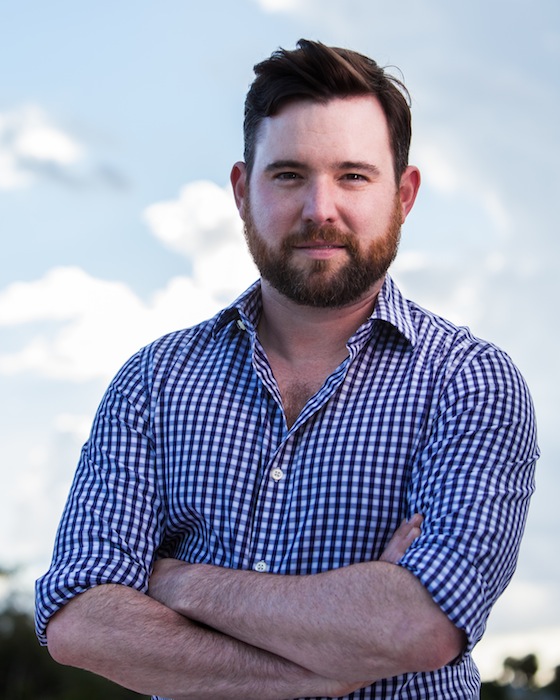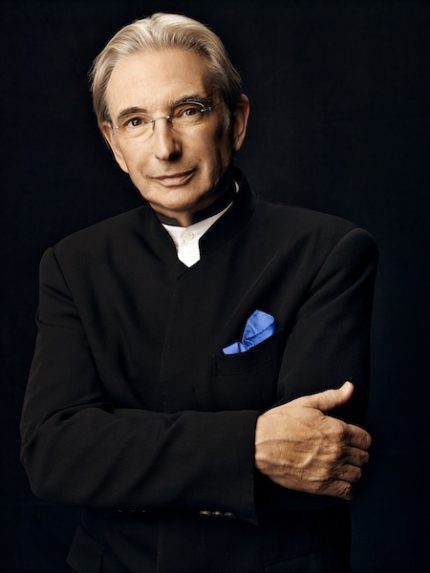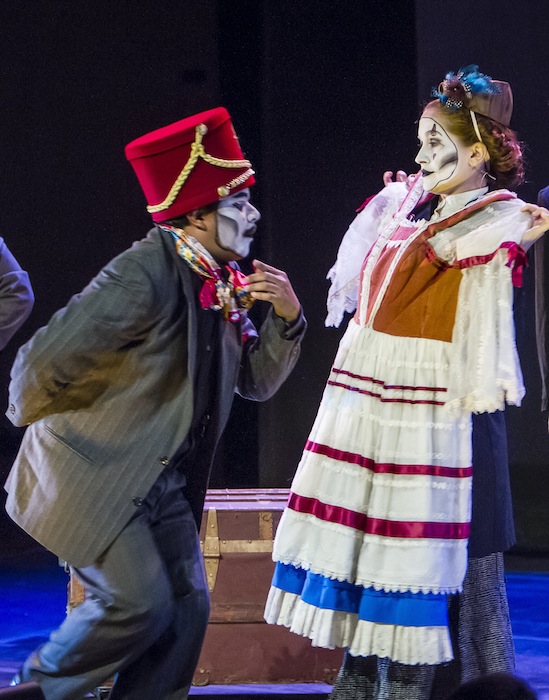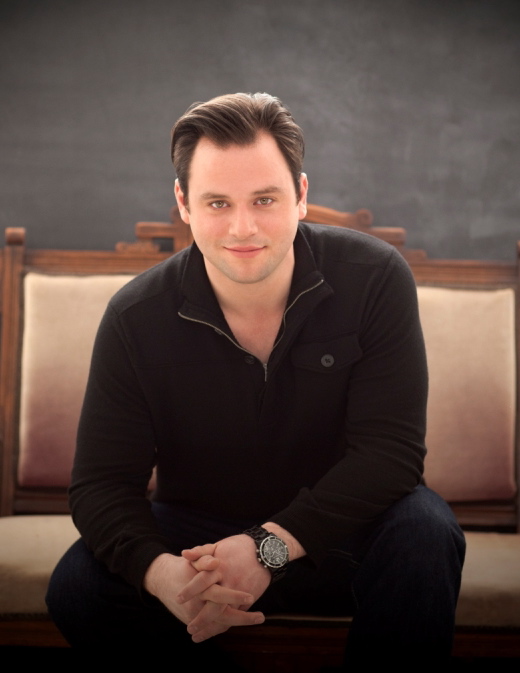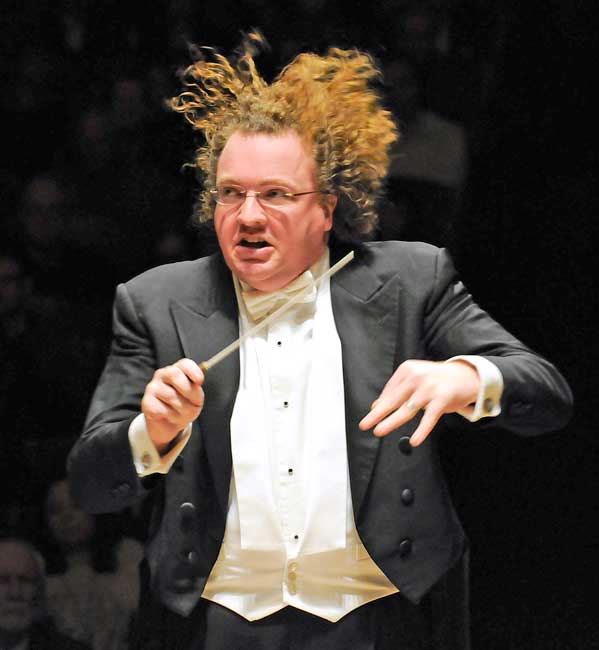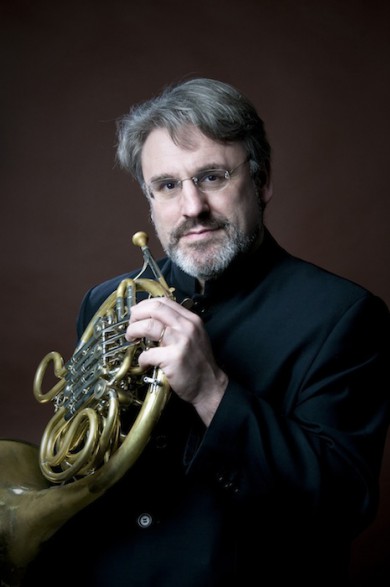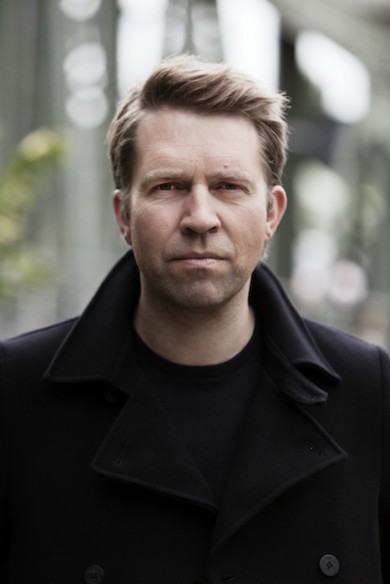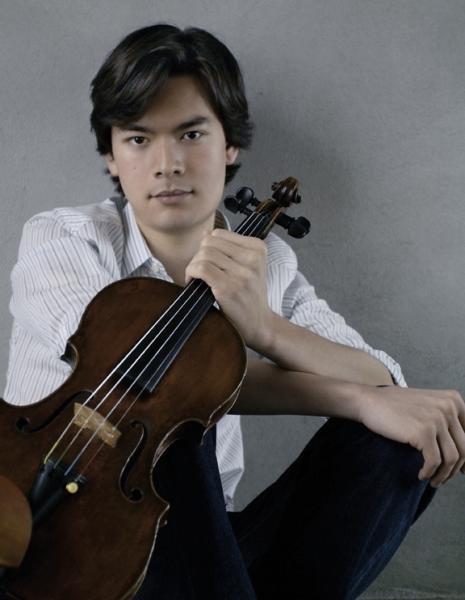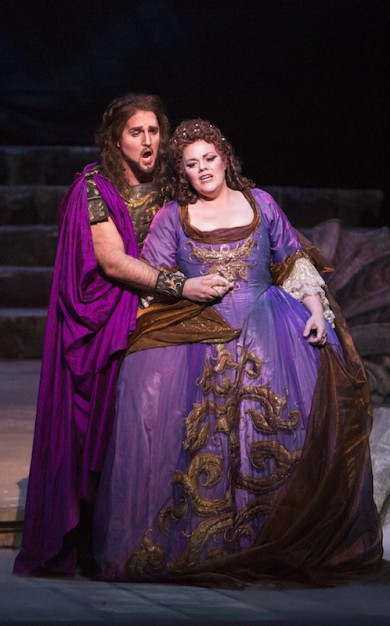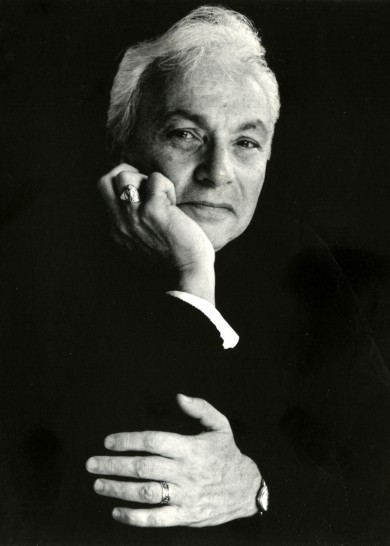Top Ten Performances of 2016
1. Patrick Quigley and Seraphic Fire–Brahms’ A German Requiem
Brahms’ rarely performed chamber edition of his German Requiem for small choir and four-hand piano has been previously championed by Seraphic Fire’s artistic director Patrick Quigley. The choir’s April performance of this intimate version was one of its finest efforts, the singing replete with warmth and emotional thrust. Tamara Wilson’s gleaming soprano and Dashon Burton’s strong bass added superb solo vocals. (LB)
2. Michael Tilson Thomas and the New World Symphony–Mahler’s Das Lied von der Erde
By the time the last notes of this vast work had faded away, it was clear that this April performance had been one of the greatest of the season. The ecstasy, terror and sheer weirdness of Mahler’s setting of Chinese poems about life, wine, death and nature came through brilliantly. Tenor Simon O’Neill gave a performance that lurched from drunken exuberance to death-shadowed rumination. Mezzo-soprano Sasha Cooke’s performance of the final movement had the audience rapt with the quiet eloquence of her singing. (DF)
3. Frost Opera Theater–Stravinsky’s Mavra and Golijov’s Ainadamar
The April double bill of Stravinsky’s comedic soufflé Mavra and Osvaldo Golijov’s moving and powerful music drama Ainadamar (Fountain of Tears) was Frost Opera’s best offering to date. The story of the relationship between actress Margarita Xirgu and poet-playwright Frederico García Lorca, Golijov’s synthesis of flamenco, modernist and Middle Eastern influences received expert advocacy from Mia Rojas, Zaray Rodriguez and Ana Colado in the leading roles. Alan Johnson’s fluent conducting, Jeffrey Buchman’s intense staging and Rosa Mercedes’ pulsating choreography were all first-rate. (LB).
4. Paul Appleby and pianist Ken Noda for Friends of Chamber Music of Miami
Not only did this March concert provide South Florida music lovers the rare chance to attend a real lieder recital, it did so with a world-class singer and pianist. The tenor Paul Appleby, a regular on the stage of the Metropolitan Opera, brought a compelling sense of drama, velvet tone and gift for long lines of melody to works that ranged from the innocent, youthful Romanticism of Schumann through the more sensual songs of Hugo Wolf to arias of Mozart and Tchaikovsky. (DF)
5. Stephane Denève and The Philadelphia Orchestra
In February at the Arsht Center, the special artistic partnership between the “Fabulous Philadelphians” and principal guest conductor Stephane Denève yielded artistic dividends in a program commemorating the 400th anniversary of William Shakespeare’s death. The ensemble demonstrated that it is still in the elite league of American orchestras. Denève’s traversal of ten movements from Prokofiev’s Romeo and Juliet ballet underlined the dance rhythms without glossing over the score’s more raucous and acerbic moments. (LB)
6. Radovan Vlatkovic with the Mozarteum Orchestra of Salzburg
After the piano, violin and cello, the horn has one of the richest repertoires of concertos. Strauss’s Horn Concerto No. 1 received a heroic performance in December by soloist Radovan Vlatkovic in a concert with the Mozarteum Orchestra of Salzburg, conducted by Matthew Halls. This small 175-year-old orchestra, scaled to performances of Classical and Baroque works, provided a glowing accompaniment in Strauss’s late Romantic harmonies, as Vlatkovic’s gleaming tone soared above it. (DF)
7. Leif Ove Andsnes with Franz Welser-Möst and The Cleveland Orchestra
Returning to South Florida after an absence of two decades, Norwegian pianist Leif Ove Andnes combined mature depth of expression and immaculate technique in Schumann’s Piano Concerto with the Clevelanders in January. Andnes’ astute blending of poetic reverie and bold sweep was ably seconded by Welser-Möst and the orchestra. A taut and blazing performance of Tchaikovsky’s rarely heard Symphony No. 1 was a fine bonus. (LB)
8. Master Chorale of South Florida and Brett Karlin–Haydn’s Lord Nelson Mass
Although Haydn ranks among the world’s greatest composers, performances of his works are rare events in South Florida. The Master Chorale of South Florida gave a performance in April of his Lord Nelson Mass that expressed the grandeur, religious wonder and joy of the composer at the height of his powers. Led by artistic director Brett Karlin, the performance, backed by the Lynn Philharmonia Orchestra, at Fort Lauderdale’s Coral Ridge Presbyterian Church was a technically impressive, compelling evening of choral music. (DF)
9. Stefan Jackiw with the Russian National Orchestra
Jackiw’s silvery tone and rare interpretive gifts captured the bittersweet lyricism and angst of Prokofiev’s Violin Concerto No. 2 at the Kravis Center in March. Conductor Kirill Karabits and the Russian National Orchestra were full partners in a performance that was refreshingly bereft of prettified accents. Karabits’ finely pointed reading of Stravinsky’s harmonically lean 1945 revision of The Firebird Suite was a potent showcase for Russia’s finest ensemble. (LB)
10. Palm Beach Opera–Strauss’s Ariadne auf Naxos
A musically idiomatic and theatrically adroit staging of Strauss’ blend of vaudeville and Grecian tragedy filled the Kravis Center stage in March. Daniel Witzke’s witty stage direction and Andreas Delfs’ masterful conducting formed a strong underpinning for the thrilling vocalism of Wendy Bryn Harmer in the title role and Brian Jagde as Bacchus. Kathleen Kim’s dazzling high range and sweetness of timbre soared in Zerbinetta’s fourteen-minute showpiece, and Irene Roberts’ gleaming mezzo served the role of the Composer splendidly. (LB)
Honorable Mentions
Mlada Khudoley and Dana Beth Miller in Florida Grand Opera’s Norma; the corporate sonority and precision of the period instrument band Tempesta di Mare at the Tropical Baroque Festival; Santiago Rodriguez’s fiery Prokofiev Piano Concerto No. 3 with Mark Gorenstein and the UM Frost Symphony; Stephen Hough’s Beethoven Emperor Concerto with the FIU Symphony under James Judd and his Schubert D minor Sonata for Friends of Chamber Music; New World Symphony’s Moravec-Reich-Copland Pulitzer Prize program; Seraphic Fire’s performance of the Fauré and Duruflé Requiems; Franz Welser-Möst’s lucid conducting of Prokofiev’s rarely heard Divertissment and Symphony No. 3 with the Cleveland Orchestra; Jacomo Bairos and the Nu Deco Ensemble’s high energy revival of Hindemith’s Kammermusik No. 1; Janai Brugger and David Portillo in Palm Beach Opera’s Don Pasquale and Portillo’s recital of Spanish song for IlluminArts; Bernard Labadie leading the New World Symphony in Haydn’s Symphony No. 95 (LB)
A majestic account of Bach’s Mass in B minor by the Master Chorale of South Florida and The Symphonia conducted by Brett Karlin; a gripping account of Shostakovich’s Fifth Symphony by the Cleveland Orchestra conducted by Giancarlo Guerrero; Florida Grand Opera’s production of Mieczyslaw Weinberg’s dramatically absorbing, if musically unconvincing Holocaust drama The Passenger; the New World Symphony’s concerto concert revealing the solo talent of its members; Yo-Yo Ma’s earthy, elegant and grandiose performance of Bach suites for solo cello. (DF)
Dishonorable Mentions
Pierre Boulez’s arid explosante-fixe (exploding fire) lasted an endless 36 minutes and its three amplified flutes were grating on the ears at New World Symphony’s Sounds of the Times; Renaud Doucet’s trite staging of Donizetti’s Don Pasquale at Florida Grand Opera, burdened by inadequate singing from the leading soprano and tenor; The Sebastians’ poor intonation and scrappy playing undercut Seraphic Fire’s revival of the Gregory Spears’ completion of Mozart’s Requiem (LB)
Best New Works
Shawn Crouch’s visionary, strikingly original Visions and Ecstasies: A Mass, premiered by the UM Frost Chorale under Karen Kennedy at the Saint Martha concert series; Unsuk Chin’s modernist and riveting Clarinet Concerto (brilliant played by Jerome Cômte) and Michael Tilson Thomas’ stylistically diverse Four Preludes on Playthings of the Wind based on poems by Carl Sandberg (with soprano Measha Bruggergosman brilliantly encompassing operatic, blues and scat singing) at New World’s Sounds of the Times (LB)
Most Far-Out Presentation
In February at Wynwood’s Center for Visual Communication, a performance of German-Argentine avant-garde composer Mauricio Kagel’s ‘musical circus’ Dressur proved a merry romp. During the 30-minute work, percussionists Karlyn Viña, Tyson Voigt and Michael Westfield-Zell played (from memory) such exotic instruments as Central American water bowl drums, wooden shoes and bouncing ball box, as well as more familiar percussion instruments, while dancing, chanting, humming and acting, partly on a mound of earth. Far from being a dreary, sterile exercise, Kagel’s opus was a diverting mix of slapstick interplay and considerable humor. Hopefully the presentation will herald the beginning of more contemporary music fringe events. (LB)
Most Encouraging Development
Florida Grand Opera sold its Doral headquarters last summer and the anonymous buyer then donated the building back to the deficit strapped company. The $6.8 million dollar donation, the largest in FGO’s history, wipes out the accumulated deficit and will allow the company to plan productions and casting three years in advance and to present smaller scale, cutting-edge works in alternative venues. (LB)
Most Welcome Revival
Florida International University School of Music Dean Robert Dundas revived the FIU Music Festival which had been discontinued several seasons ago. Displaying the school’s faculty and students as well as some guest artists, the revived festival’s programming (while not neglecting other genres) was overwhelmingly classical. This was in stark contrast to the University of Miami Frost School of Music’s annual Festival Miami which has become largely devoted to jazz and pop offerings. The FIU programs smartly mixed familiar and infrequently heard scores. (LB)
Distinguished Achievement Award
Composer-conductor-educator Fredrick Kaufman celebrated his 80th birthday this year. In April Florida International University staged a gala concert that was a tasty sampling of Kaufman’s compositional output encompassing six decades . Creator of over 130 orchestral, chamber, dance and music theater scores, Kaufman’s musical universe ranges from aleatoric works to jazz and neo-romantic compositions which have been played by major soloists and ensembles around the globe.
Kaufman was founding director of the FIU School of Music. In his decade in that post, he recruited prominent musicians as faculty members and visiting instructors and launched an annual music festival featuring world-class guest artists. Through the high quality of his compositions and work as pedagogue, administrator and concert producer, Kaufman has made an important contribution to South Florida’s cultural life. (LB)
Posted in Articles
Leave a Comment
Thu Dec 15, 2016
at 5:08 pm
No Comments
